
Abstract: One way to disrupt traditional Eurocentric teaching practices is through modifying curriculum in classes. Particularly, in an English Composition 101 course, an ongoing assignment called the Poetry Journal may assist students in thinking critically and reflexively. The concept was inspired by a high school English teacher, Brett Vogelsinger (2016), called “4 Reasons to Start Class with a Poem Each Day.” His four reasons: 1. Poems are short; 2. Poems are intense; 3. Poems connect (to other readings); 4. Poems inspire (writing). When building the assignment for a community college class, an instructor may make intentional (disruptive) choices for the poems. This article explores the project, which is grounded in culturally sustaining (Paris, 2021) and disruptive pedagogies (San Pedro, 2018)—both of which encourage the rethinking and dismantling of traditional Eurocentric-based instruction—and how the author (full-time faculty at a community college) applied said pedagogies to a specific in-class student activity to engage students in critical and reflexive thinking.
Continue Reading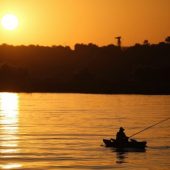
Abstract: This paper describes the outcomes of a game designed to teach advanced leadership skills, specifically influence and negotiation strategies, to current and aspiring sustainability professionals at Virginia Tech’s Center for Leadership in Global Sustainability. In the game, students assume the role of a key stakeholder and practice principle-based negotiation, conflict management, consensus building, and related influence skills needed by professionals working on complex sustainable development challenges such as the transboundary resource issues
regarding hydropower and watershed management. We collected pre- and post- survey data to assess the effectiveness of the simulation in developing students’ negotiation and influence skills. Results suggest that the training helps students develop confidence in using influence and negotiation skills and feel more competent and better prepared to serve as leaders in the field.
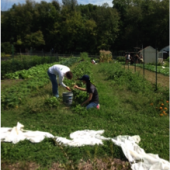
Abstract: Campus agriculture projects are increasingly being recognized as spaces impactful to student engagement and learning through curricular and co-curricular programming; however, most campus farm activities are limited to agriculture or sustainability programs and/or co-curricular student clubs. Thus, campus farms are largely underutilized in the undergraduate curriculum, marking a need to explore the efficacy and impact of engaging a diverse array of disciplinary courses in the rich social, environmental, and civic context of local sustainable agriculture. The Farm Hub program presented here incentivizes instructors to refocus a portion of existing course content around the topic of local, sustainable agriculture, and reduces barriers to using a campus farm as a situated learning context for curricula. A pedagogical framework founded in place-based experiential learning (PBEL) theory was developed to guide instructors in the development and implementation of 4–6-week inquiry-based PBEL modules embedded in existing courses. The framework was converted into a research protocol to quantify program implementation fidelity and PBEL best practice adherence for the proposed lesson plans (intended) and their implementation (applied). The framework enables the development of a cohesive cross-curricular program so that the impact of implementation fidelity and best practice adherence to student learning outcomes in scientific literacy, place attachment and meaning, and civic mindedness can be assessed and the results utilized to develop a formal farm-situated PBEL pedagogical taxonomy. This framework can be applied to PBEL curriculum in natural spaces beyond campus farms.
Continue Reading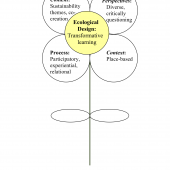
Although sustainability has become an important focus in higher education, there is a need for understanding how sustainability competencies can be cultivated in college and university courses and programs. This article argues that learners who are to become capable of affecting holistic sustainable change, transforming values and culture, healing the earth and human communities, and designing creative solutions, must have the opportunity to engage in learning processes that reflect these learning outcomes. We outline key elements of sustainability pedagogy and suggest best pedagogical practices for designing engaging and holistic sustainability learning.
Continue Reading
Many educators teach the topic of sustainability, but how many do so in a sustainable manner? From the requirement of textbooks, to paper for printed syllabi or assignments, higher education is a consumer of resources. The materials of design education, however, expand to include media like trace paper for ideation or foamcore for model making, as a means of communicating ideas. Yet, following presentations and grades, a majority of these physical materials enter the waste stream while digital versions populate online portfolios. Hence, design education provides a unique and transferable lens to explore an inquiry-based collection, documentation, exhibition and repurposing of discarded materials, to render new insights and re- imagine pedagogical practices, wherein learning and deliverables truly reflect the values and discourse of sustainability.
Continue ReadingIn 1999, the National Association of Social Workers (NASW) in the United States published a policy statement on the environment that acknowledged the social work profession’s apparent “lack of interest” in environmental issues, and called for a new urgency among social workers to address the challenges of pollution, environmental contamination, and resource depletion. Despite this call for urgency and the increasing certainty of widespread social and environmental crises due to climate change, the integration of ecological concepts into mainstream social work education and practice has been slow and sporadic. Only recently have some social workers begun to openly discuss a re-centering of social work within a sustainability paradigm, emphasizing the importance of interconnectedness among humans and the natural world, interdisciplinary alliances and partnerships, and holistic justice-focused practice. This paper explores the potential for a case study assignment in a Master of Social Work (MSW) program to help make explicit connections between sustainability concepts introduced in the classroom and the practical application of these concepts in a wide range of social work practice settings. Three sample case studies from students are presented, and advantages and challenges of this pedagogical approach are discussed.
Continue Reading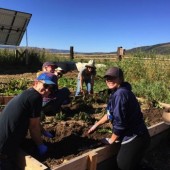
Abstract: Offers a brief introduction to the Journal of Sustainability Education issue focused on hope and agency, highlighting hope and agency as essential aspects of sustainability education in the Anthropocene.
Continue Reading
Abstract: The author has written extensively about American Indian relationships to the natural world with a focus on his published concepts of kincentricity and kincentric ecology (Salmon, 2000). Both are explanatory models of how American Indian cultures feel a sense of direct relationship and responsibility toward their surroundings. Traditional American Indians understand that they are directly related to everyone and everything in their natural surroundings. Everything in one’s environment is animated with a life force. How then does one teach kincentric ecology in an urban environment? A suggestion is to assign projects that will help students recognize the relationships happening all around them and to recognize that we humans exist in a relationship with everything around us. The author devised a project asking students to make periodic observations of the sun and/or moon. In the process of their observations students were asked to become aware of and to journal about their surroundings during their observations. The result was that students became periodically immersed in their natural surroundings and were, therefore, exposed to a facet of kincentricity.
Continue Reading
This opinion/editorial presents the belief that love is present in all human lives as an emotional experience and may be present in all human lives as an intellectual idea as well. It considers possible actualities that lie behind some common thoughts (clichés) about love. The author presents the idea that even though love is central to our lives, the word love, if not the concept of love, is avoided in academic discourse. The author explores some of the scholarly, theoretical, and philosophical writing about love, noting that it is often named something other than love (compassion, well-being, altruism, etc.). The question and invitation are presented to consider what might be possible if love were intentionally and specifically identified as a methodology, pedagogical practice, and value in leadership, activism, and education.
Continue Reading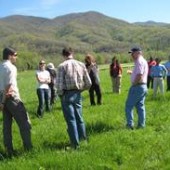
Sustainability Education is intended to provide learning, training, and practical experience, in both formal and non-formal settings, that fosters personal development, community involvement, and action for change in our human and natural worlds. Grounded in our experience of the world, Sustainability Education must mirror both the patterns present in our natural environment and the conditions present in our human society with the intention of preparing us for uncertain and rapidly transforming world conditions. Nature is the source of our identity as living beings and society the medium for expressing this. The conditions and needs for our survivability as a species and society will change depending on circumstances and through events that may be outside our control. Our success will depend upon our ability to respond in ways that value personal initiative, responsibility, creativity, commitment, and collaboration with others.
Continue Reading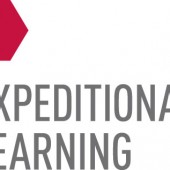
Millions of youth in the United States today are mandated to go to “work” daily. Indoor spaces, hard, plastic seats, and inauthentic menial tasks characterize their workplace. In a time in which the life support systems of our planet are imperiled and more humans are living in communities of poverty and violence, there exists an absurd disconnect between how education is currently practiced and the education that is needed to facilitate deep cultural revolution. Our teachers are taught to teach using the same irrelevant pedagogies, sitting in rows inside institutions of higher learning, taking notes, and memorizing disconnected facts for regurgitation on multiple-choice exams. My argument is that we are not going to be able to implement any true attempts in sustainability education without concomitant change in the way we teach teachers. While publicly funded schools still provide an equalizing agent to potentially provide opportunity for all children regardless of their race or social class, no school can truly educate children to meet the coming demands of our time without experiential teacher education. Expeditionary Learning, a national reform model for public schools, creates lasting change in the praxis of teaching by creating opportunities for teachers to learn in a different way than they have often been taught as students themselves. With continued coaching when they return to their classrooms, teachers are able to create learning environments embodying inquiry and authenticity so that our youth are empowered to affect societal change.
Continue Reading
The field study (or short-term study abroad) creates a successful hybrid of study abroad and field research. These short-term educational adventures (edu-ventures) give environmental or sustainability students opportunities to gain practical knowledge while traveling domestically or overseas. In addition, it presents the opportunity for both faculty and students to extend the traditional Boyer model of scholarship, a reputable professoriate model, by developing continuity. The field study fulfills the four pedagogical goals of the Boyer model: creating research opportunities (discovery); breaking down the silos of traditional academic departments (integration); acting as consultants on-site (application); and educating students beyond the faculty members’ expertise (teaching). In addition, these field studies fulfill a fifth goal: building relationships and transgressing time (continuity). The development of this Boyer Plus model from a field-study experience serves as a tremendous tool for colleges, universities and professors to build the opportunities and necessary pedagogical skills for both traditional and non-traditional students.
Continue Reading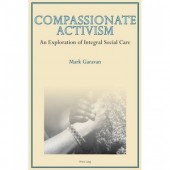
In this informative review, Tina Evans makes the succinct argument that Garavan’s work, which never directly addresses sustainability, nonetheless brings home the central and crucial role of integral social care to a just and sustainable world. Evans’ review provides a great overview of the book and serves as an easy entry-point into this important work.
Continue Reading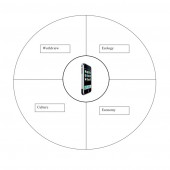
As a professor of undergraduate media studies, I have attempted to bridge media education and ecoliteracy by developing an experimental media education approach called Ecomedia Literacy. The framework attempts to balance the strengths of media studies with the concerns of education for sustainability. This paper documents a specific case study in which I introduced sustainability themes into an undergraduate digital technology and culture course by using the Ecomedia Literacy framework.
Continue Reading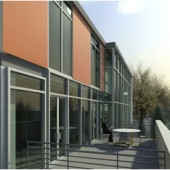
In a world of changing climate and environmental degradation, architects play a key role in the pursuit of sustainability. In this article, Karen Kensek offers digital tools that will provide up and coming architects with the necessary skills and knowledge to produce sustainable building designs.
Continue Reading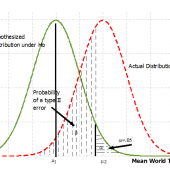
Dave Tomkins and Panagiotis Tsigaris focus their fine analytical stats skills on how to not to make the wrong kind of error…yes, that should be the right logic…regarding global warming. They elegantly lay out the math behind what we all know intuitively…nothing is to be lost from taking precautions regarding global warming, or avoiding Type II statistical error, which comes, not from assuming that humans caused global warming, even when we didn’t, but rather being unable to prove that humans cause global warming, when in fact we are causing it. They present the statistics in the context of a course case study and make it clear that we have no reason to wait on the data since the potential for this type of error is already with us and the actions to be taken are probably beneficial in other areas as well.
Continue ReadingAchieving a sustainable future requires that individuals adopt different values, attitudes, habits, and behaviors, which are often learned and cemented at a young age. Unfortunately, current educational efforts are inadequate for achieving transformative action. Even programs whose primary goal is to promote responsible, pro-environmental behaviors have largely failed at creating change among students. The lack […]
Continue Reading